Search Results
Showing results 1 to 20 of 24

A Book About Me
Source Institutions
In this math activity, each learner creates a book about themselves using a template. Learners discuss the different parts of the body and practice measuring their body parts using crayons.

Physics Tug of War
Learners set up books with rubber bands stretched between the books. When two identical books are stretched apart and released, they move back toward each other an equal distance.
Counting Books: Make Your Own!
Source Institutions
On the first night, I saw 5 stars in the desert. On the second night, I saw 10… What do you think I saw on the third night? Combine arts and crafts, literacy, and math by making a counting book.
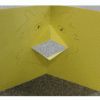
Simple Pop-Up Mechanisms
Source Institutions
In this activity, learners construct three quick and simple mechanisms to start building a pop-up book. Learners fold, cut, and glue paper to make a bird beak, parallelogram, and V-fold.
Paper Bag Skits: Using Size and Measurement
Source Institutions
Put the math of measurement, numbers, and everyday life into improvisational skits.

Cloud Fun
Source Institutions
Learners complete a series of hands-on and investigative activities to explore cumulus clouds.
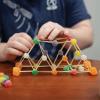
Building Bridges
Source Institutions
In this activity, learners explore the engineering design process and the basic mechanics behind building bridges as they build one themselves using gumdrops and toothpicks.
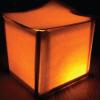
Paper Lanterns
Source Institutions
In this activity, learners explore light and shadows by creating a lantern they can keep on their nightstand.

Fly on the Ceiling
Source Institutions
In this math lesson, learners play two different games to help them understand coordinates. First, learners read the book, "The Fly on the Ceiling," by Julie Glass.
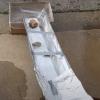
Build An Aqueduct
Source Institutions
In this activity, learners use the design thinking process to design and build their own aqueduct, or water bridge.
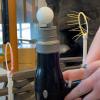
Bernoulli Obstacle Course
Source Institutions
In this activity, learners create their own obstacle course based on Bernoulli's Principle and try to get a floating ball from the start of their course to the finish line.

Paper Table
Source Institutions
In this design challenge activity, learners use tubes of newspaper to make a table that’s at least eight inches tall and strong enough to hold a heavy book!

Divide and Conquer: Santa's Dirty Socks
Source Institutions
This activity introduces the idea of "divide and conquer" using a fictitious but serious problem--a pair of dirty socks has accidentally been wrapped in one of the presents that Santa is about to deli
Math and Creativity Posters
Source Institutions
These math posters have questions written on them, such as: How many colors can you name in a minute? or How many seconds can you balance on one foot?
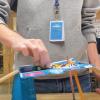
Build a Bridge
Source Institutions
In this activity, learners use design thinking to design and build their own bridge out of household materials including adhesives and/or connectors.
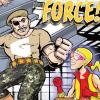
Doughy Physics
Source Institutions
Learners drop two different masses of play dough and observe how long it takes them to hit the ground.
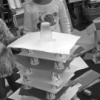
Apartment Buildings and More
Source Institutions
In this engineering activity, young learners investigate multi-level buildings.

The Desert Blooms!
Source Institutions
This activity attempts to clear up the common misconception that deserts are always hot, totally dry, and uninhabitable.
Animal Math Posters
Source Institutions
These math posters have questions written on them, such as: How fast can a cheetah run? or How long can a giant tortoise live? Post these around the room or leave them out for children to explore.

Shake It Up!
Source Institutions
Learners drop a magnet through a coil of wire to create electric current in a circuit. LEDs in the circuit allow learners to detect the direction of current flow.
